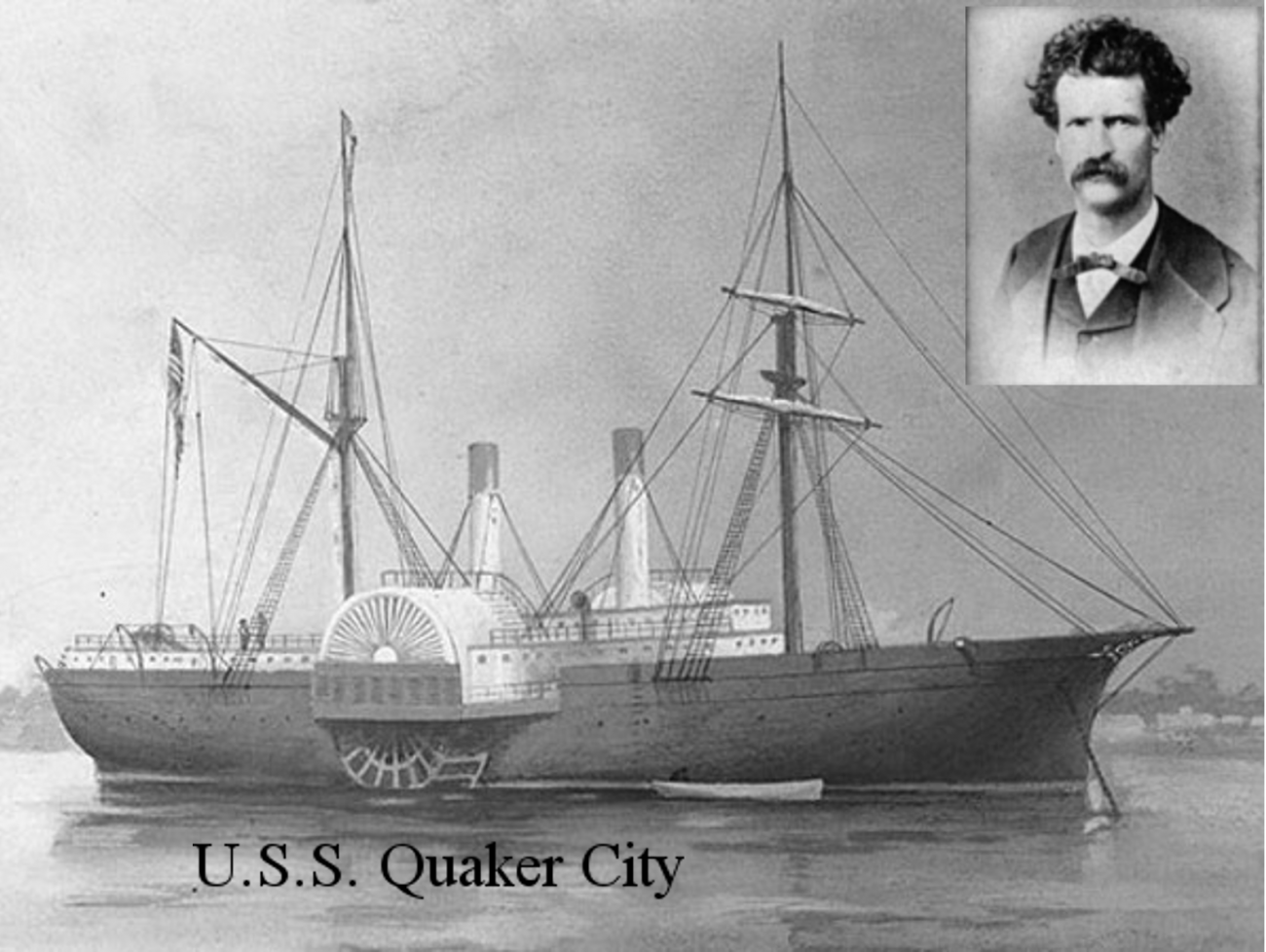In the final chapter of his book, Roughing It, Mark Twain comments on the changes that occurred during his time in the American West.
I found home a dreary place after my long absence; for half the children I had known were now wearing whiskers or waterfalls, and few of the grown people I had been acquainted with remained at their hearthstones prosperous and happy—some of them had wandered to other scenes, some were in jail, and the rest had been hanged. These changes touched me deeply, and I went away and joined the famous Quaker City European Excursion and carried my tears to foreign lands.
I, as my Second Life avatar SLClemens, have been reading and recording the chapters from this book. I have been creating video slideshows, using the illustrations included in the Gutenberg Project version, and publishing them on YouTube. I'm hoping this all results in some comment and perhaps controversy. In fact some comment has first occurred regarding Mark Twain and the Ottoman Empire.
I expect to update this page as we progress through the book.
The ship sailed from New York harbor on June 8, 1867 and returned on November 19. Twain had convinced his employer, the Daily Alta California, to pay his passage ($1,250) as well as accept his travel letters. The book is derived from these letters as well as others written for the New York Herald, and the New York Tribune and of course his own journal. Daniel McKeithan has compiled these letters and written on how they were edited and included in the final book. (see Travels with the Innocents Abroad, 1958). I am including PDFs of these letters, accessed from California Digital Newspaper Collection on those pages for chapters to which they pertain. This may be a bit tricky as there is not always a one to one correspondence between them and also because different sections of letters may be used in differing chapters within the book.
Possibly the single most important moment in Twain's life occurred because of a fellow passenger, Charles J. Langdon of Elmira, New York. He showed Twain a picture of his sister, Olivia. Twain (Clemens) married her in 1870.
- Log in to post comments
